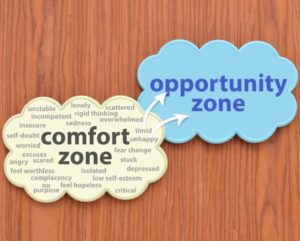How Positive Is Your Psychology?
By Brett Steenbarger

One of the questions I’m most frequently asked by busy students and professionals is how they can best manage their stress. Recent research in psychology suggests that this might be the wrong question. Stress is inevitable in situations that challenge us, and we cannot grow—as people or professionals—if we are not challenged. Internships with organizations and people from different cultures are a perfect example of how new—and sometimes challenging and stressful—situations can help us develop as people and professionals.
From this perspective, the goal is not to remove stress but to increase our emotional well-being. When we have a positive psychology, we’re most likely to be energized and engage in our best learning. Research suggests that, if our experience is positive—happy, fulfilled, energized, and engaged—stress is much less likely to turn into distress. It is the balance between the demands of what we do and our positive experience of the doing that helps us succeed across all areas of life.
The cognitive framework in psychology suggests that it is not events in themselves that create negative emotional experiences, but how we interpret those events. Our self-talk—how we think about things—can turn events into opportunities or catastrophes. A good example of this is the “learning mindset”. In a learning mindset, we anticipate a learning curve and actively expect to make lots of mistakes early on. Mistakes are not viewed as failures, but as opportunities to learn and develop. A great example of a learning mindset is “fail fast”: makes lots of first mistakes and repeat very few of those. In the learning mindset, we don’t judge ourselves by standards of perfection, but on our improvement over time.
Conversely, if we approach our learning with a “perfectionistic” mindset, any setback or mistake will be viewed as a failure. This creates stress and distress. For the perfectionistic student, good enough is never good enough. The goal is to never fail, not fail fast. Because all of us are fallible, the perfectionistic mindset is guaranteed to leave us feeling like we’ve fallen short.
Will your internship be filled with stress and distress, or will it become an opportunity for cultivating a positive psychology? How we approach our learning has a great impact on how much we learn, how well we perform in our work, and how much we enjoy our experience. No one ever achieved their potential by staying within their comfort zones. The internship is a great opportunity to make lots of mistakes and learn lots of things!












